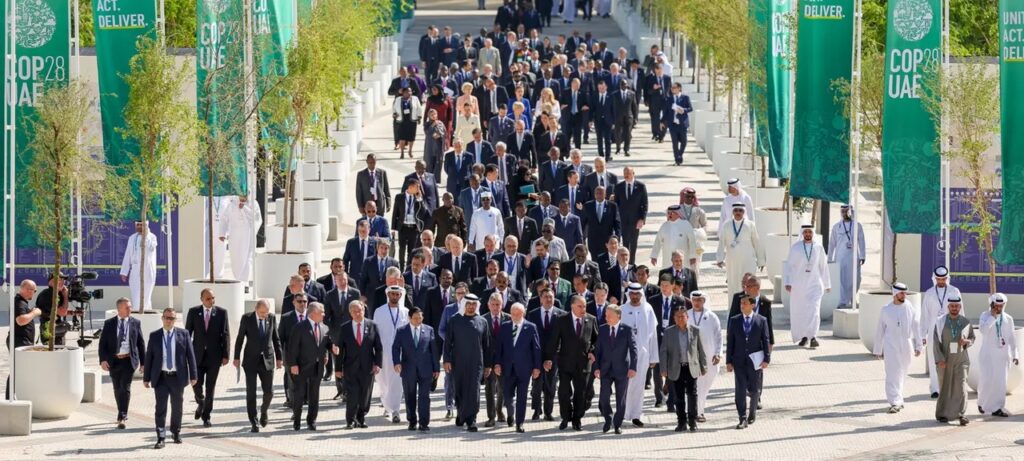The UN Climate Change Conference in Dubai is close to the finishing line. As usual it will take intensive negotiations during the final hours or overtime to reach an agreement by unanimity by all parties at the conference.
When the COP28 President, Sultan Al Jaber, on Monday afternoon presented the preliminary conclusions of the conference, he disappointed the EU delegation and most of the countries that had hoped for a text on phasing out fossil fuels. In fact, all text about phasing-out had been deleted. Instead, the draft agreement repeated vague formulations from previous conferences.
That should not have come as a surprise. Sultan Al Jaber plays a double role as United Arab Emirates’ Special Envoy for Climate Change and the chair of the Abu Dhabi National Oil Company (Adnoc) which plans to double its oil production. His country has pledged to achieve net zero carbon emissions by 2050 but, like other oil-producing countries, continues to invest in fossil fuels.
"The new draft conclusions are far from the breakthrough we need,” commented Jutta Paulus, Greens/EFA member of the European Parliament delegation to COP28.
“The COP28 Presidency must seize the opportunity to end the age of fossil fuels. Sultan Al Jaber keeps communicating that he wants a historical outcome by ending the COP on time which he certainly will not achieve by presenting this inacceptable text. The EU must stay the course and not leave any back doors open for fossil fuels when calling for an end to coal, oil and gas.”
The European Parliament has sent a delegation to the conference to scrutinize the work of the COP28 presidency and push for phasing-out of all fossil fuels. In a resolution ahead of the conference, the Parliament called for an end of all direct and indirect fossil fuel subsidies, at national, EU and global levels, “as soon as possible and by 2025 the latest”, and halting all new investments in fossil fuel extraction.
At a press conference in Dubai last Friday, Wopke Hoekstra, the Commissioner for Climate Action, said that the Parliament is a key partner in EU’s domestic climate action. “It’s thanks to the Parliament that we expect to reach our emissions reduction target by 2030.” Hoekstra leads the EU negotiating team in the formal decision-making process at COP28.
He still sounded optimistic on Friday after a meeting with Sultan Al Jaber and expected that COP28 at least would mark the beginning of the end of fossil fuels. He could accept that a minor part of the solution could be phasing-down emissions by carbon capture storage (CCS) but did not specify how much. “The hard work has to be done by phasing-out – that is what science tells us,” he underlined.
He repeated his message in a tweet on Monday: “We need to keep a 1.5-degree figure alive. It is what science demands and our kids deserve.” On Tuesday, he started his day with a discussion with UN Secretary-General Antonio Guterres, who repeatedly is warning about the consequences of global warming if COP28 fails to get its act together and decide on the phasing-out of all fossil fuels.
A Commission spokesperson declined to comment on the Commission’s negotiating mandate. “The COP is a complicated multilateral negotiation, with many inter-connected elements,” he told The Brussels Times. “We cannot say until the end what language has been accepted.”
“We’ll likely have another Plenary session at some point, based on a new negotiation text, but things change by the hour.”
M. Apelblat
The Brussels Times

